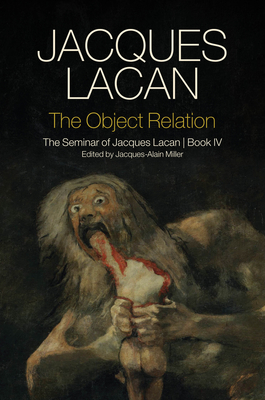June 7th, 2022:
My second review of this book. The second time I went through the seminar in French. My understanding of it now is probably a tad different (I hope).
At this point in time, Lacan is in the structural phase of his thought. He is currently devoted to Kojeve, and has also been dabbling in Levi-Strauss and is profoundly influenced by the Saussure. So all these elements are playing into how he conceives the myth making capacity of Little Hans with respect to the dialectic between himself and the Other. In Seminar III, he introduced the Schema L, and gained momentum in his understanding of narcissism... and in Seminar V he will, (although I haven't read it yet), put away the ego and really talk about the Formations of the Unconscious.
What's fascinating for me, is the Little Hans case is such a profoundly important work for the understanding I have, and I imagine Lacan has, of the Oedipal conflict with regards to his theory. Even though late Lacan, no longer discusses the Oedipal conflict but retains the idea of the phallus, I wonder if it's possible to understand late Lacan without understanding the important work he's done in this seminar.
Anyway, it was quite a fun time I have had over the past 9 months studying this text, if I do go through it again, it may not be in the same detail, but in an attempt to read through the entire seminars in order (don't know if that task is insane).
5 stars forever. Maybe 6 stars.
January 16, 2022:
Whew... made my first trip through this book.
This is an awesome book, and offers an opportunity for the reader to join Lacan and reread Freud with him to discover the dialectic of the object through a Lacanian lens.
That dialectic consists of frustration, privation and castration. The unfulfilled mother and the phallus are central. In these lectures, which took place in 1956-1957 you will hear Lacan's views on The Three Essays on Sexuality, the Little Hans story, Leonardo da Vinci among others and how the subject of language finds itself in the dialectic of desire by the (m)Other.
I will be reading it again this year, as I also begin to read Seminar V: Formations of the Unconscious. Where he introduces the nodal point... and really delves in the Nom-du-Père.
LOVED IT, AND LEARNED A LOT. 6/5 stars.

